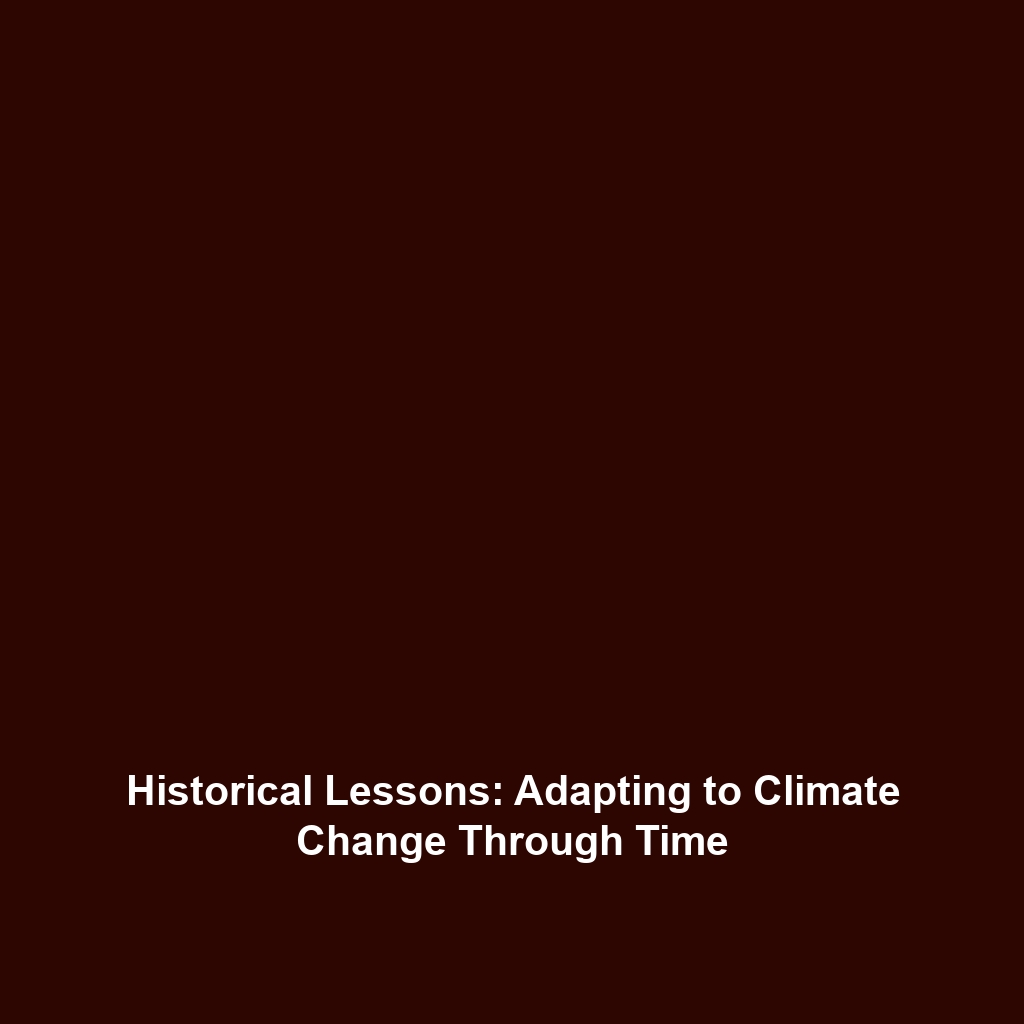Adaptation to Climate Change in History
Introduction
Adaptation to climate change throughout history serves as a critical lens through which we can understand human resilience and ingenuity. As global temperatures have fluctuated, societies have navigated challenges by modifying their practices, technologies, and infrastructures. This topic not only highlights significant historical events but also informs contemporary adaptation strategies necessary for future climate resilience. Understanding adaptation in the context of climate history is vital, given the increasing urgency of climate change today.
Key Concepts
In examining adaptation to climate change in history, several key concepts emerge:
- Resilience: The ability of societies to withstand and recover from climate impacts.
- Technological Innovation: Development of new tools and methods in response to environmental changes.
- Socioeconomic Adjustments: Changes in agricultural practices, settlement patterns, and social structure due to climate impacts.
- Cultural Practices: Adaptation reflected in arts, traditions, and community bonds responding to climate challenges.
These concepts underscore how adaptation to climate change acts as a pivotal component of climate history, providing essential insights into the strategies that have successfully mitigated climate-related risks throughout time.
Applications and Real-World Uses
Understanding how adaptation to climate change is used in climate history can inform current practices and policies. Key applications include:
- Agricultural Adaptations: Developing drought-resistant crops based on historical agricultural practices.
- Urban Planning: Utilizing historical data to design resilient infrastructure capable of withstanding extreme weather.
- Disaster Preparedness: Lessons learned from past climate events guiding modern emergency response strategies.
These examples illustrate the practical uses of adaptation to climate change in history, highlighting the importance of integrating historical knowledge into current climate strategies.
Current Challenges
Despite its significance, studying adaptation to climate change in history presents several challenges:
- Data Availability: Historical records may be scarce, inconsistent, or fragmented.
- Contextual Understanding: Difficulty in applying historical adaptation strategies to contemporary contexts.
- Interdisciplinary Collaboration: Need for integration across various fields such as climatology, archaeology, and sociology.
Addressing these challenges of adaptation to climate change is essential for effective research and application.
Future Research and Innovations
There are exciting avenues for innovation and research in the field of adaptation to climate change in history. Anticipated advancements include:
- Data Science Applications: Utilizing big data and AI to analyze historical climate patterns.
- Advanced Climate Models: Developing more accurate models that incorporate historical adaptation strategies.
- Community-Centric Approaches: Engaging local populations to co-create adaptive solutions rooted in historical success.
These innovations promise to enhance our understanding and application of adaptation strategies essential for shaping a more resilient future in climate history.
Conclusion
In conclusion, adaptation to climate change in history provides invaluable lessons that remain relevant in today’s climate discourse. By examining the resilience, innovations, and adaptations of past societies, we can better prepare for future challenges posed by climate change. To learn more about related topics, consider exploring climate impacts or historical adaptations. Together, we can contribute to a comprehensive understanding of climate history and its implications for sustainable development.
